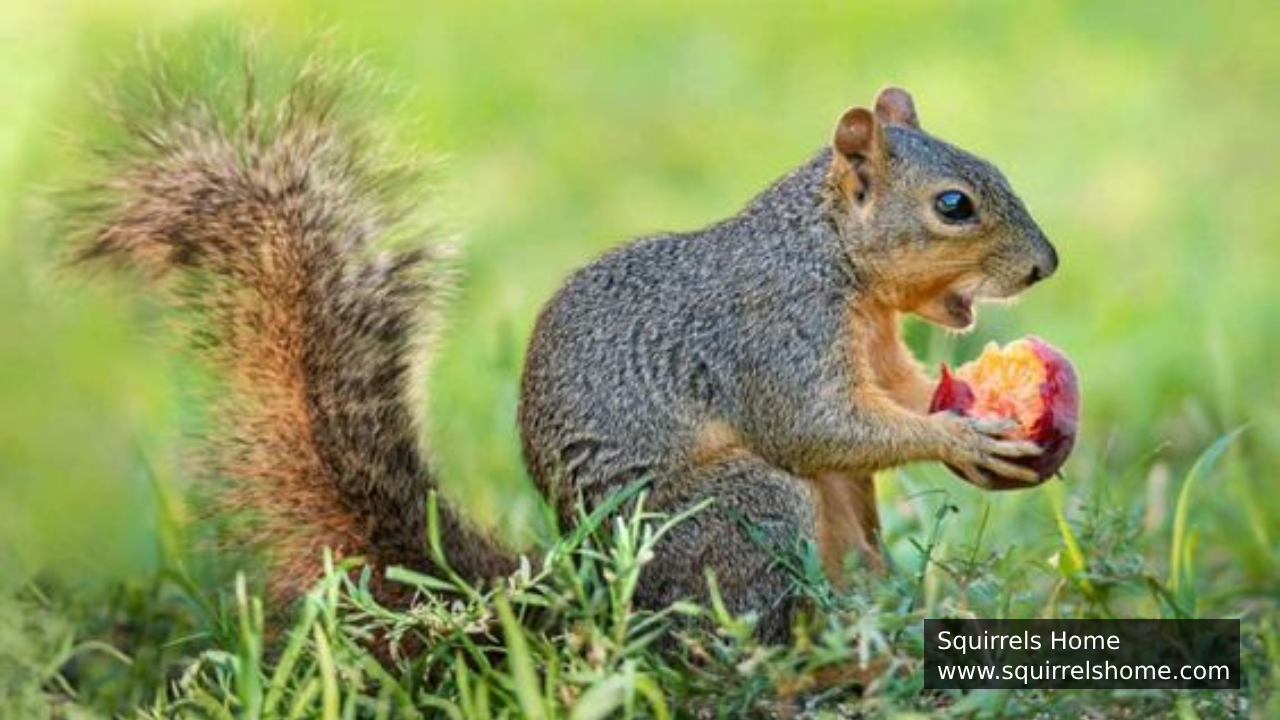Squirrels’ ability to find food is nothing short of amazing. Their sharp eyes play a huge role in this process. These tiny creatures rely heavily on their vision to survive, and their eyes have special features that help them spot food quickly and efficiently, even in challenging environments.
The Unique Placement of Squirrels’ Eyes
Squirrels have their eyes located on the sides of their heads. This side placement gives them a wide field of vision, allowing them to see almost everything around them without turning their heads. This feature is especially helpful when they’re searching for food on the ground or in trees.
Because of this wide-angle vision, squirrels can spot potential food sources like nuts, seeds, and fruits from a distance. They can also keep an eye out for predators while foraging, ensuring they stay safe while gathering their meals.
Sharp Vision for Detail
Squirrels have excellent eyesight. They can see tiny details, which helps them identify specific types of food. For example, they can distinguish between a ripe nut and an unripe one or spot seeds hidden among leaves.
This sharp vision is particularly useful in forests and parks, where food can blend into the surroundings. With their keen eyesight, squirrels can focus on tiny objects and decide whether they are worth collecting or eating.
Color Vision Helps Spot Food
Unlike some animals, squirrels can see colors. Their color vision isn’t as advanced as humans, but it’s good enough to help them identify colorful fruits and berries. Brightly colored food stands out against green leaves or brown tree bark, making it easier for squirrels to find meals.
This ability to see colors also helps squirrels recognize plants that are safe to eat. They can avoid potentially harmful foods by noticing their appearance.
Adapting to Different Light Conditions
Squirrels are active during the day, and their eyes are designed to handle bright light. However, their vision also works well in lower light conditions, like early mornings or evenings. This means squirrels can search for food during these times when it might be safer from predators.
Their eyes’ adaptability to different lighting conditions allows squirrels to maximize their time and gather enough food to survive.
Depth Perception for Accurate Judgments
When squirrels jump between trees or climb to high places, their depth perception is crucial. Their eyes can judge distances accurately, which helps them find food in tricky spots. For example, they can leap to a branch holding a cluster of acorns or climb down to grab a fallen fruit.
This skill is especially important in areas with tall trees and dense vegetation. Squirrels can safely navigate these spaces while ensuring they collect as much food as possible.
Memory and Visual Cues
Squirrels don’t just rely on their eyes to find food. They also use their memory. When they hide nuts or seeds, they remember the locations using visual markers, like a specific tree or rock.
Their eyes help them recognize these markers later, ensuring they can retrieve their hidden food. This combination of memory and visual recognition is key to their survival, especially during winter when food is scarce.
Conclusion
Squirrels’ eyes are perfectly adapted to help them find food in their environments. From their wide field of vision to their ability to see colors and judge distances, these features work together to make them expert foragers. By relying on their sharp vision and memory, squirrels can thrive in forests, parks, and urban settings alike.
FAQs
1. Do squirrels see better during the day or night?
Squirrels are diurnal, meaning they are active during the day. Their eyes are adapted for daylight, but they can also see reasonably well in low-light conditions like early morning or evening.
2. Can squirrels see far distances?
Yes, squirrels can see far enough to spot food or predators from a distance. Their wide field of vision also helps them stay alert to their surroundings.
3. How do squirrels’ eyes help them avoid predators?
Squirrels’ side-placed eyes give them a wide view, allowing them to detect movement and potential threats even when they are focused on foraging.
4. Are squirrels’ eyes better than humans’ eyes?
Squirrels’ eyes are specialized for their needs, such as spotting food and avoiding predators. While their color vision is not as advanced as that of humans, their wide field of view and sharp detail recognition make them highly effective for their survival.
5. Do squirrels’ eyes change with age?
As squirrels age, their vision might decline, just like in many animals. However, young and healthy squirrels have excellent eyesight, which helps them find food and stay safe.
